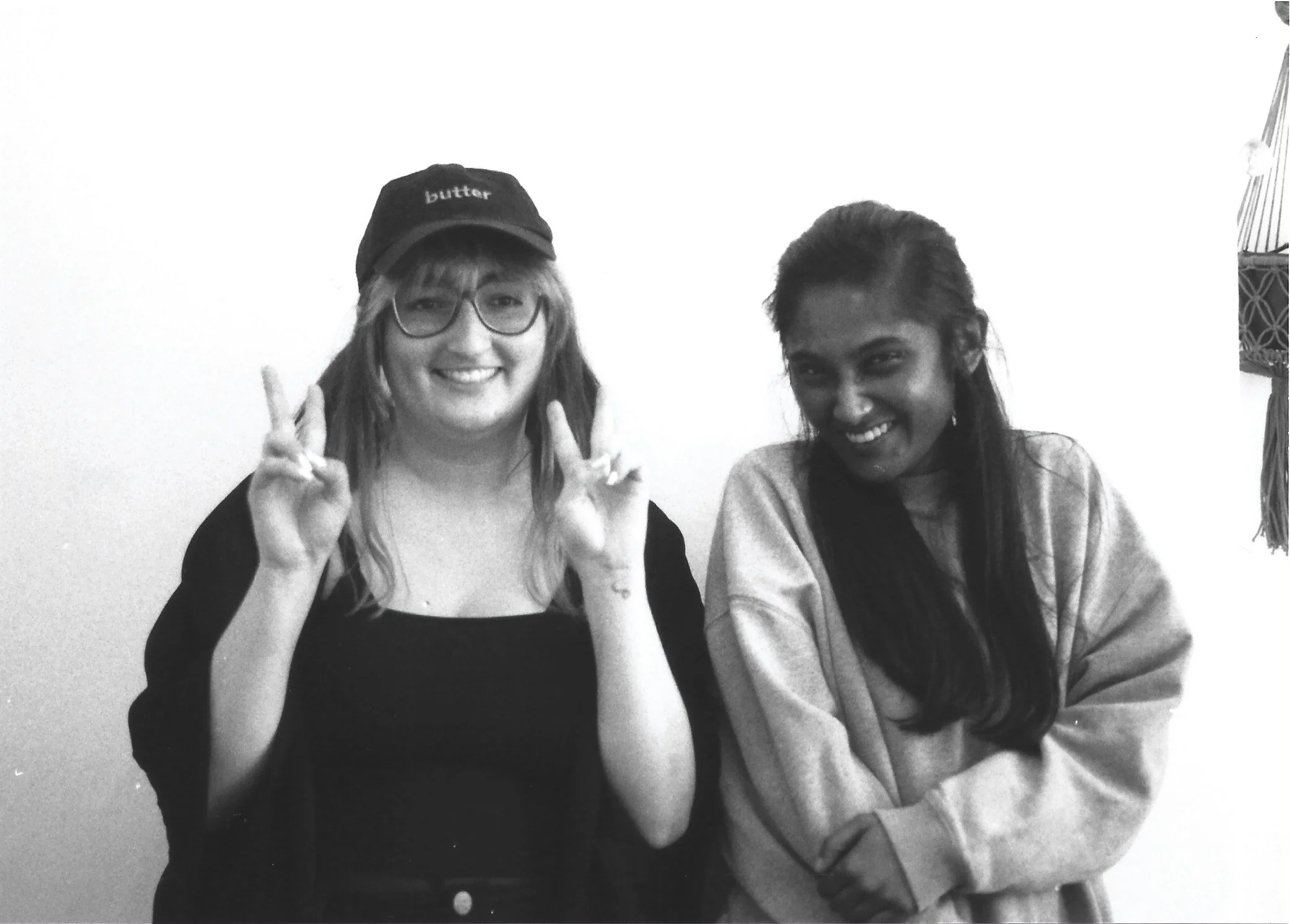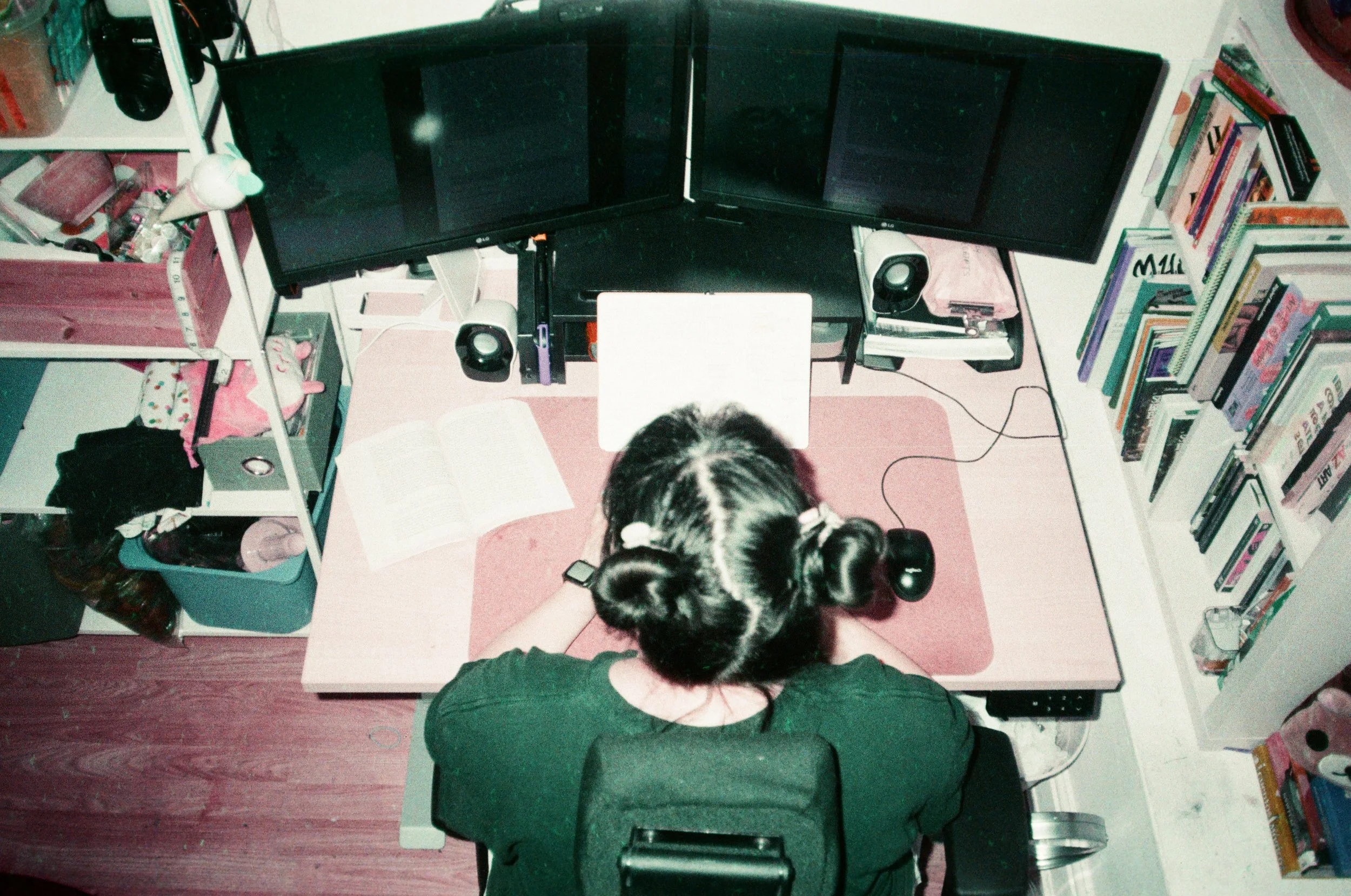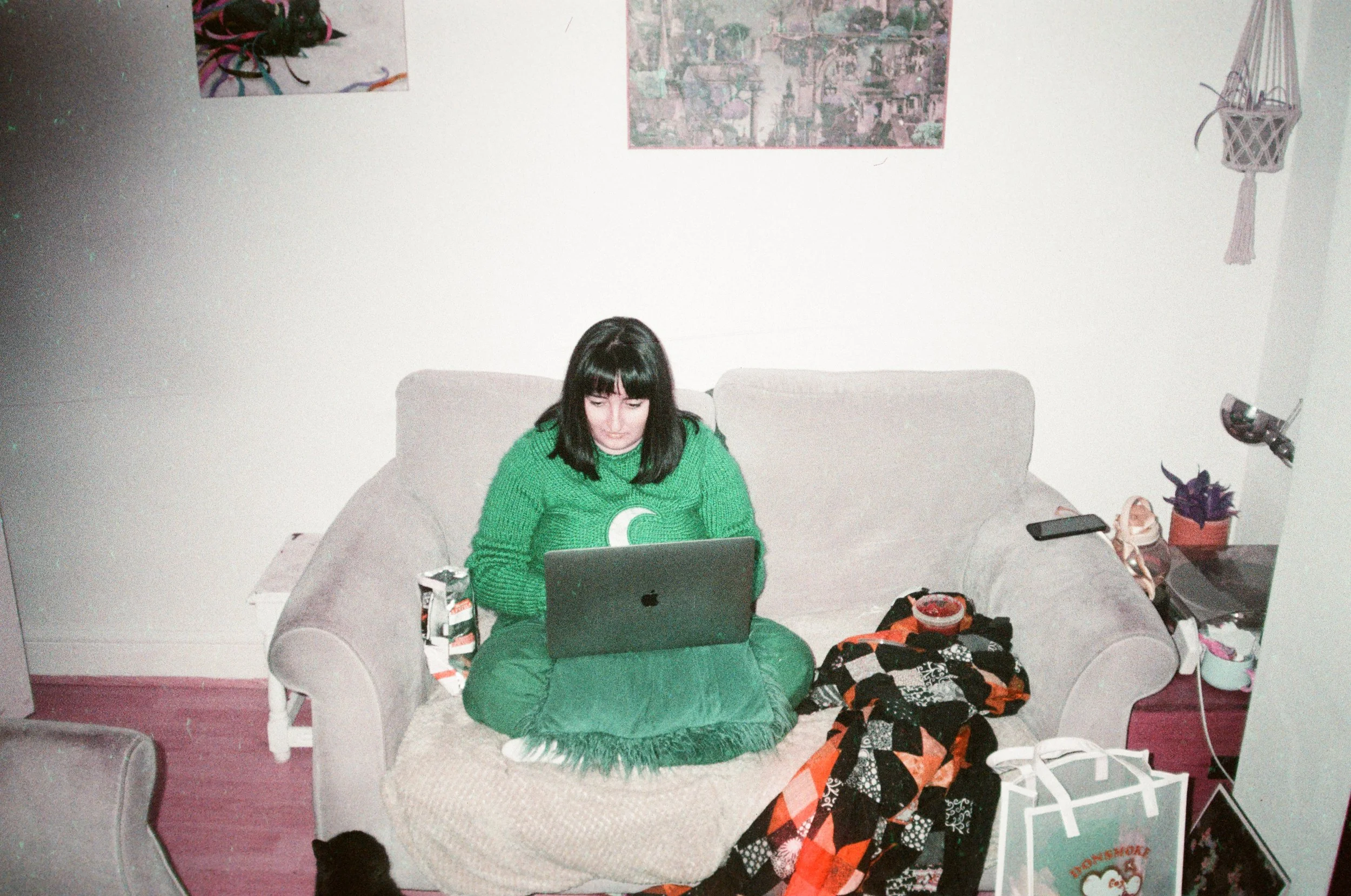The White Pube on Poor Artists, Verbalising the Creative Impulse and Possible Utopias
Words: Gina Tonic
Make it stand out
I am not embarrassed to say that I approached Poor Artists, the new and first book by art critic duo The White Pube, made up of Zarina Muhammad and Gabrielle de la Puente, with trepidation. I was worried that I may be getting stuck into a text too involved in a world that I am not personally involved in. Of course I know most artists have a crap time. The Young British Artists? Heard of them. But outside of the accrued knowledge of the occasional gallery visit, article read and podcast listen, I’m far from well versed on the goings on of the art world.
Of course, this intimidation came entirely from within my own head. I’ve loved the writing of The White Pube for years; writing that has been pointedly accessible the entire time. Poor Artists begins, middles and ends with piles of prose, references and direct quotes that discuss art’s wider influence on us all, alongside the nitty gritty grot of ‘The Industry’, in language that is easy to understand and emotions that all of us can empathise with. It lets you pause for thought between chapters with detailed lists of artworks that help you parse the information you’ve just read. I’d hate to give anything more away other than to fully, thoroughly recommend you pick up a copy and comb through it cover to cover - only after reading our interview with The White Pube pair below.
The book is fiction informed by a lot of non fiction research, interviews and life experiences - how did you decide on writing it from a character perspective?
Gabrielle: The book made that decision for us. Initially, we thought we would focus entirely on platforming the people we were speaking to, keeping ourselves out of it, almost like we just wanted to be polite. It was mostly about their stories - Quest didn’t exist, her name didn’t exist. She was just like a fly on the wall in all these different situations. But as we got deeper into it, something didn’t feel right.
In conversations with our editor, Josephine Greenwood, she pointed out that something was missing. Her advice, which was really good, was to go back and reread our book proposal. In the proposal, we had written as ourselves, basically saying, "You need to give us money to write this book; it’s going to be fucking amazing, queens!" She had laughed so much reading it—which is rare—and that’s when she knew she wanted to move forward with the book. She told us to bring that energy into the writing and stop making it just about the people we were interviewing. We had something to say too. We were like, "Oh, yeah," and it seemed so obvious afterward. And that’s how Quest was born. She came about because 'Q' is the letter between Z and J.
Zarina: Quest felt like a funky name. Talukdar is my Dadi’s (grandmother) maiden name. We spent a few months grappling with the anonymity, and then by December 2022, we went on a residency in Ireland, in this small town called Cobh, in Cork. It’s on the southernmost tip, where the Titanic made its last stop before crossing the Atlantic and failing to reach New York. It’s the same town where all the Atlantic liners used to dock. There’s an art center there called Sirius, located in what used to be the world’s oldest yacht club, dating back to the 1600s. The place felt haunted, and maybe a spirit came forth and told us, "Just give her a name." So, we decided to stop fighting the anonymity and finally gave her a name.
We were dancing around the idea of not giving her pronouns or a name, and avoiding having people directly address her. But so many of the conversations we were having were deeply personal — people were talking to us about their experiences, and we were engaging with them. It was all about that dialogue. To capture the depth of those exchanges, she needed a presence, something to fully embody and reflect the conversations as much as they did themselves.
What was the best part of writing Poor Artists?
Zarina: In the interviews we conducted, I realised that after years of writing, I was sick of my own opinion. There’s only so many times you can rephrase cynicism toward institutions or express whatever critical thoughts I have. Even before writing, I was tired of thinking about my perspective. I really wanted to use this book as an opportunity to discover what others thought. I love chatting, so that was my favourite part — it was so interesting to engage with people. The conversations were fascinating because they covered both the abstract, blown-out nature of these topics and the super-specific, granular details.
Gabi: My favourite part is that while many people write books about the creative sector, they don’t often talk about art itself. That’s why, when it came to writing this book, I didn’t want to create a nonfiction piece that was simply transcripts of interviews. I wouldn’t read that. So, we aimed to challenge the form and edit it in a way that incorporated more art— actual artworks. I remember spending the last two months of the writing process trying to find as many relevant artworks as possible for the story. It felt like a full circle moment, reminding me why we were writing it in the first place. For instance, Tanya Bruguera’s performance, where she brought police officers on police horses into the Tate, created such surreal moments. Those are the kinds of experiences that need to be included. Artists have such an incredible impact on people.
In one of the early chapters Quest laments having to write essays at art school and gets advised that art speaks to things that language can’t describe - did acknowledging that help or hinder writing the book?
Zarina: I think we’ve been grappling with that rupture: art exists beyond theory, beyond language, in this almost spiritual realm. It’s this mystical experience where an artist communicates with the great beyond, wherever that may be, trying to translate and transmit it through their body. For nine years, we’ve been writing about art, attempting to match words to that experience. But there are only so many words in the English language to describe a smell. When discussing perfume, for instance, people talk about abstract, poetic concepts — like how Tom Ford's Lost Cherry smells like your first crush. There’s no way to truly convey what that smells like; it’s more about the feeling and the proximity to it.
In that proximity, you create a productive space where you can have fun, get creative, and play around with ideas. That’s why fiction resonates so well with this concept. The mismatch — or the space — between art and language is where we’ve found a lot of joy and exploration over the past nine years while writing this book.
It’s hard to discuss the reality of the arts/being an artist without totally crushing everyone’s spirits. How did you make sure you strike a balance between hope and transparency?
Gabi: I feel really glad that the book is so bleak because I just feel that in real life all the time. I’ve felt messed over by not having familial wealth, then I got disabled by COVID, and now I’m struggling with the government and not getting help from the NHS, no offence. I still have to continue working, even though it makes me less safe. There’s no end to it because I don’t know anyone who can afford to look after me. So, I’m dragging myself down to London to do all this book press, thinking, “Well, maybe if the book sells well enough, I can afford to go back to bed and rest.” That’s my situation. People around me can’t even say that; they’re in debt.
There are artists who get one little bit of recognition, like winning an art prize or running a Netflix show, but that opportunity often just goes towards paying off debt. They don’t feel successful; there’s no longevity. They can’t confidently say they’re artists because maybe they were for one day, but they don’t believe it because they lack the material freedom. It’s so depressing. Honestly, I don’t know; I feel like I shouldn’t be a writer based on my life.
So many artists are defensive about the idea that their work is a form of labour. They argue that it should be recognised as such, deserving of a workplace and a salary. Part of me agrees with that perspective. But then I think about the more exciting possibility: what if no one had to rely on salaries because we were all provided for? Wouldn't that be amazing? More people could pursue art, and the world would just be so much fun.
A part of me doubts we’ll ever reach that ideal, and another part wants to escape to another country, even though I know it probably has its own set of problems. It’s nice to have these conversations about art where it feels almost self-soothing. I can imagine a better world, and when I talk about it with others, it prolongs that daydream.



